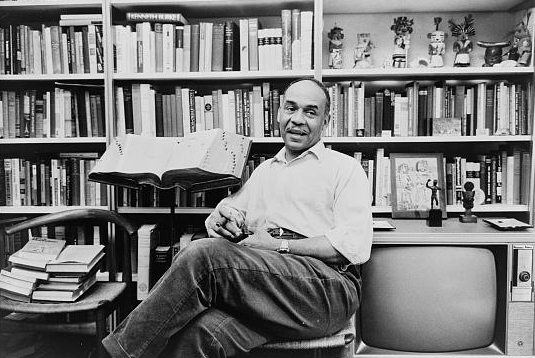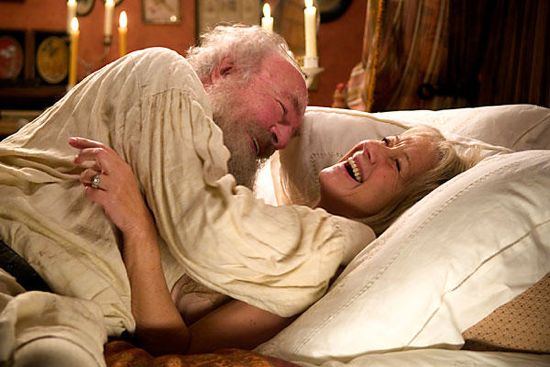News
So far this year, I’ve read thirty-four books—novels, memoirs, biographies, academic stuff—but only one book on the craft of writing. I don’t really like how-to books on fiction, because too many of them come equipped with check lists of things you should do in order to write. But this particular book was great: The Half-Known World, by Robert Boswell. It’s a collection of essays that address different aspects of writing and, for me at least, offer a few new ways of looking at literary fiction. The title essay, for instance, makes an excellent argument against knowing everything about a particular character or world.
It should be no surprise that the fully known worlds presented on television and in commercial movies are populated by stereotypes. To call a character a type is to say that he’s so true to a group of characters that he is indistinguishable from all the others in that group. Here’s another definition of stereotype: any character that is fully known.
I met Boz in 2006, at the Bread Loaf Writers’ Conference, where I was a fellow and he was my faculty mentor. (He was smart, funny, and generous, and I will forever be grateful to him.) The lecture he delivered at the conference that year was called “Process and Paradigm.” It’s included in this collection. So if you’re looking for a good book on craft, try this one. It’s good.

Every few months, an editor will say in an interview that he or she can tell, after reading only two or three pages of a submitted manuscript, whether the writer can write. These pronouncements are usually met with a good deal of skepticism and even some anger. After all, applying this rule provides the quickest way to go through the submission pile. But it’s probably true that, for some writers, you can tell. Take the opening few paragraphs of Invisible Man, for instance.
I am an invisible man. No, I am not a spook like those who haunted Edgar Allan Poe; nor am I one of your Hollywood-movie ectoplasms. I am a man of substance, of flesh and bone, fiber and liquids—and I might even be said to possess a mind. I am invisible, understand, simply because people refuse to see me. Like the bodiless heads you see sometimes in circus sideshows, it is as though I have been surrounded by mirrors of hard, distorting glass. When they approach me they see only my surroundings, themselves, or figments of their imagination—indeed, everything and anything except me.
Nor is my invisibility exactly a matter of biochemical accident to my epidermis. That invisibility to which I refer occurs because of a peculiar disposition of the eyes of those with whom I come in contact. A matter of the construction of their inner eyes, those eyes with which they look through their physical eyes upon reality. I am not complaining, nor am I protesting either. It is sometimes advantageous to be unseen, although it is most often rather wearing on the nerves. Then, too, you’re constantly being bumped against by those with poor vision. Or again, you often doubt if you really exist. You wonder whether you aren’t simply a phantom in other people’s minds. Say, a figure in a nightmare which the sleeper tries with all his strength to destroy. It’s when you feel like this that, out of resentment, you begin to bump people back. And, let me confess, you feel that way most of the time. You ache with the need to convince yourself that you do exist in the real world, that you’re a part of all the sound and anguish, and you strike out with your fists, you curse and you swear to make them recognize you. And, alas, it’s seldom successful.
I think you’ll agree that the voice of the narrator is so powerful it compels you to read what follows. I remember when I read Invisible Man the first time, I felt almost overwhelmed by its artistry–how deeply layered the writing was and how character, voice, setting, time and plot all worked together completely seamlessly. I couldn’t stop reading. And I suspect that that’s what these editors have in mind when they say you can tell.
Photo credit: Library of Congress.

I am back from a short holiday in beautiful New Mexico. The skies, the vistas, the pueblos, the museums in Santa Fe–everything was just perfect. My husband loved it so much he started to make plans to retire there, even though he still has a good twenty-five years to go before he can consider such a thing. I did some reading before and while on travel, some of it academic (a history book that is somewhat relevant to my novel in progress), some of it genre (Stieg Larsson), and some of it literary (Mongo Beti.) It was good to be away from the computer and the phone for a while. Now I am back at my desk, catching up on mountains of email and other correspondence, and finally, finally, having my special cup of Cuban coffee.

Between working on my new book and keeping up with the World Cup, my days have been very busy lately. What better soap opera than the implosion of the French team? What better opportunity to compare bad haircuts than the one provided by the Algerian team? What more devastating exit than that of Brazil, who scored against themselves? Was there ever a more exciting football game than the Uruguay-Ghana match this week? I had hoped that Ghana would make it past the quarter-finals and was crushed when they didn’t, especially because the game would not have been decided on penalties if Gyan hadn’t missed his kick against Uruguay. And don’t get me started on Suarez’s left hand! So you see there is plenty of character and drama, which is all I need to keep me happy, whether in or out of books.
Photo credit: Getty images

I didn’t know what to expect from The Last Station, the film adaptation of Jay Parini’s novel about the last year of Tolstoy’s life, but I have to say I enjoyed it tremendously. As I’m sure you’ve heard, the acting is great: Helen Mirren plays Sophia Tolstaya; Christopher Plummer is the great man; James McAvoy plays Tolstoy’s secretary Valentin Bulgakov; and poor Paul Giamatti gets to be Chertkov. But really what sets this adaptation apart is that the screenplay is so good. It’s multi-layered, well-paced, and handles its deeply flawed characters with great care. Which, of course, it owes to Parini’s novel. This movie made me glad I reinstated my Netflix subscription.
On a somewhat related note, it was reported this week that Sergei Tolstoy, the novelist’s 87 year old great-grandson, now lives in a low-income assisted living facility in DC. He wants to write a book about his service as an undercover officer in the U.S. Army.
Photo credit: Sony Picture Classics



